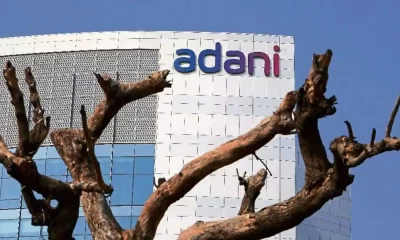Latest business news
Adani group shares fall as OCCRP report alleges opaque funds used to invest in Adani Group
Similarly, shares of Adani Ports and Special Economic Zone (APSEZ) saw a decline of 2.25 percent, reaching Rs 800.25.
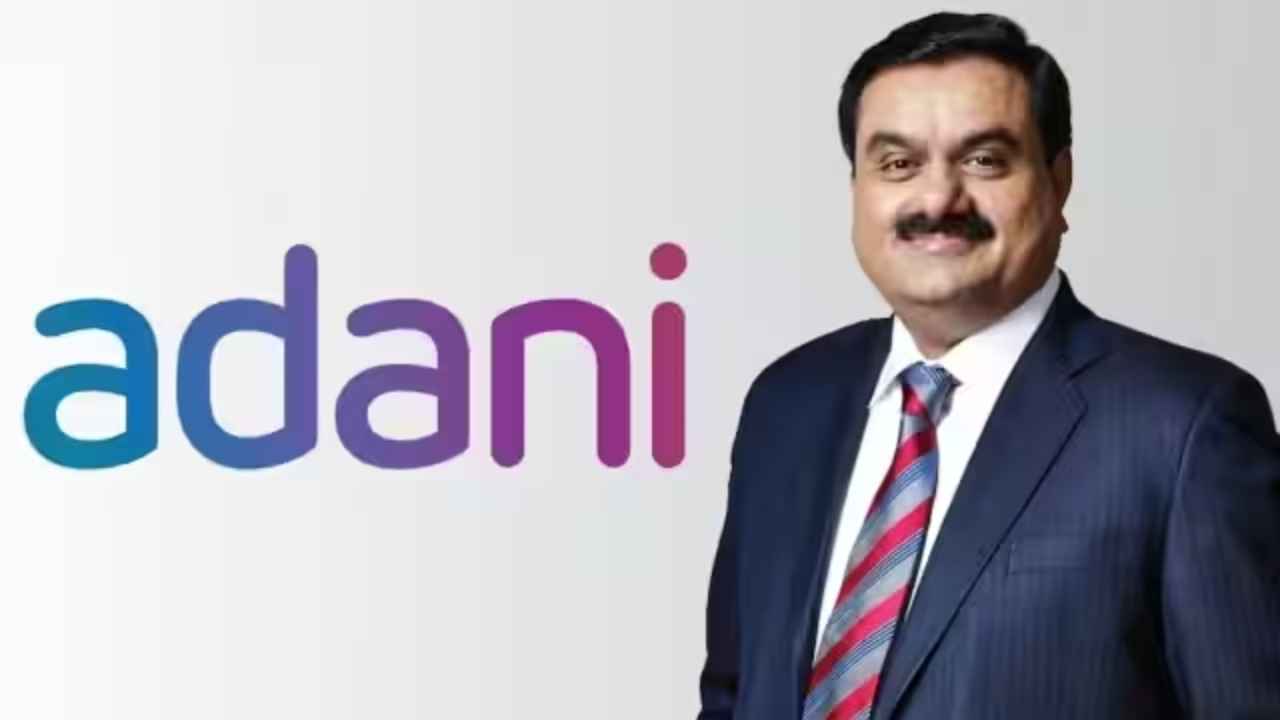
Adani Group companies experienced a significant decline in their share values on Thursday following a report that alleged the utilization of opaque funds by Adani Group’s family partners to invest in millions of shares of the conglomerate’s publicly listed firms. The flagship company of the group, Adani Enterprises, witnessed an initial drop of over 3 percent in its shares during early trading. By approximately 11:50 am, the company’s shares were trading at a 2.09 percent decrease, priced at Rs 2,460.60 per share.
Similarly, shares of Adani Ports and Special Economic Zone (APSEZ) saw a decline of 2.25 percent, reaching Rs 800.25. Adani Green Energy’s shares experienced a decrease of more than 3.3 percent, settling at Rs 937.90. Additional entities within the Adani Group, including Adani Transmission (-1.82%), Adani Wilmar (-1.63%), Adani Total Gas (-1.89%), and Adani Power (-2.54%), also registered notable falls in response to the report from OCCRP. Concurrently, shares of companies owned by the Adani Group, such as NDTV (-1.39%), Ambuja (-2.53%), and ACC (2.53%), also witnessed significant declines during the trading session.
The OCCRP report alleges that the Adani Group channeled investments into its publicly traded stocks through concealed funds in Mauritius. This purported financial maneuver obscured the identities of supposed Adani family business partners, revealing intricate and complex financial linkages. The role of OCCRP in uncovering potential corruption adds further weight to these accusations.
In response, the Adani Group swiftly dismissed the OCCRP report, labeling it as a repetition of previous allegations. The group stated, they firmly denied these reiterated allegations. These news reports appear to be another concerted effort by interests funded by Soros and supported by a portion of the foreign media to revive the baseless Hindenburg report. This was in fact anticipated, as reported by the media last week. Despite the strong rebuttal from the Adani Group, the listed companies within the conglomerate experienced sharp declines in share prices, echoing a pattern similar to the aftermath of a critical report released by US short-seller Hindenburg Research in January.
Latest business news
Google restores delisted Indian apps after government intervention
Google on Saturday restored all Indian apps it had removed.

Google has started to restore all the delisted Indian mobile apps on Play Store agian, which they had removed due to a disagreement over service fees. After a discussion between company representatives and IT Minister Ashwini Vaishnaw, the decision was made, according to sources.
The step was taken in response to Vaishnaw’s strong statement in which he said that it is not allowed for apps to be removed from the Google Play Store. The minister had said, India is very clear, our policy is very clear…our startups will get the protection that they need.
Vaishnaw continued saying that he has already given Google a call. They will be speaking with the app developers who were delisted this week. This is not acceptable. The minister said this kind of delisting cannot be permitted.
Ten Indian companies’ apps were banned by Google on Friday, causing outrage in one of its fastest-growing markets. With 94% of phones running on its Android platform, Google holds a large portion of the Indian market. Popular names like Naukri and Bharatmatrimony were on the list.
The main point of contention is Google’s in-app purchase fees, which range from 11% to 26%. Indian startups have long opposed the US tech giant’s actions, believing them to be unfair.
The founder of Bharat Matrimony, Christian Matrimony, Muslim Matrimony, and Jodii, Matrimony.com, expressed shock at the matchmaking apps’ removal from the Google Play Store.
Shaadi. Com CEO Anupam Mittal described it as a dark day for India’s internet, highlighting the possible broad effects on matchmaking services. He also called Google an evil.
While, Kuku FM Co-founder Vinod Kumar Meena in a statement had said that Google was behaving like a monopoly.
Meanwhile, Google temporarily withdrew the famous Indian payments app Paytm from the Play Store in 2020, claiming a few policy infractions. Due to this decision, the founder of the company as well as the larger startup community came together to build their own app stores and file lawsuits against Google.
Latest business news
Anant Ambani says he is 100% lucky to get Radhika Merchant in his life
Anant Ambani said he was grateful to get Radhika as his life partner. He said he is 100% lucky to get Radhika Merchant in his life. He said every day he is falling more and more in love with her. He added although he had known Radhika for the last 7 years, it felt he had met her only yesterday. He thanked Radhika for everything.

Anant Ambani and Radhika Merchant’s grand three-day wedding celebrations began with a glamorous cocktail night on Friday in Jamnagar. During the celebrations, Anant Ambani also gave a speech wherein he thanked his late grandfather Dhirubhai Ambani and grandmother Kokilaben Ambani for inspiring him. Anant Ambani said he was grateful to get Radhika as his life partner. He said he is 100% lucky to get Radhika Merchant in his life. He said every day he is falling more and more in love with her.
He expressed his gratitude to his mother for pulling together the lavish three-day wedding celebrations in Jamnagar. Anant thanked his mother for all she had done. He said all the arrangements had been done by his mother and nobody else. He added his mother had gone all out and she had worked 18-19 hours a day and he was extremely grateful to her.
He also thanked all the guests who were present there at the pre-wedding celebrations. He said everyone had made it to Jamnagar to make him and Radhika feel special. He said both of them were honored and humbled to have all of them present there. Anant said he was sorry if they had caused an inconvenience to anyone. He asked for forgiveness. He hoped everyone is going to enjoy the coming three days. He also thanked his mother, father, sister, brother, his sister-law and his brother in-law for making this event memorable.
Anant said everyone has been sleeping for less than 3 hours a day for the last 2-3 months and he was very happy to share this joy with everyone. The youngest Ambani talked about his personal struggles and how his parents had always supported him. He further added his life had not been entirely a bed of roses. He said he had also experienced the pain of thorns. He said he had faced many health crises.
Latest business news
Facebook chief Mark Zuckerberg shares pictures from 2nd day of Anant Ambani and Radhika Merchant pre-wedding celebrations
Zuckerberg shared pictures from the 2nd day of Anant Ambani and Radhika Merchant’s pre-wedding celebrations. In the photograph Mark Zuckerberg can be seen along with his wife Priscilla Chan. The couple is exuding happiness as they prepare for the event. He captioned the picture it is getting wild out here.
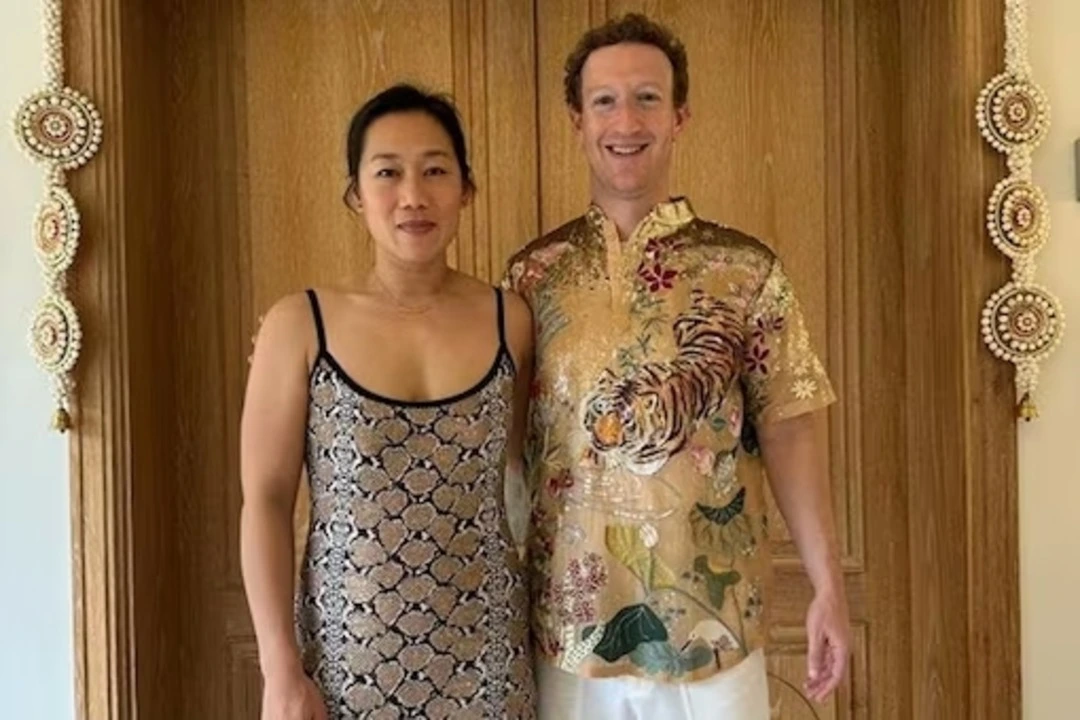
Facebook boss Mark Zuckerberg and wife Priscilla Chan joined the star- studded pre-wedding celebrations of Anant Ambani and Radhika Merchant in Jamnagar on Friday. The event was attended by many prominent figures from different fields. Zuckerberg took to his Instagram handle congratulated the couple and said he loved Indian weddings.
Zuckerberg shared pictures from the 2nd day of Anant Ambani and Radhika Merchant’s pre-wedding celebrations. In the photograph Mark Zuckerberg can be seen along with his wife Priscilla Chan. The couple is exuding happiness as they prepare for the event. He captioned the picture it is getting wild out here.
The theme of the opening day of the pre-wedding celebrations was Evening in Everland as the guests wore cocktail attire. The first day of the grand celebrations elevated the expectations of the guests for the following days. The theme of the 2nd day of the pre-wedding bash is known as a Walk on the Wildside and the guests can be seen in Jungle Fever attire.
Zuckerberg has opted for an animal print shirt with white trousers, Chan is complementing his look in a strappy one piece in black and golden. The Jungle theme is aligned to Vantara, Reliance’s animal welfare initiative undertaken and launched by Anant Ambani a few days back.
International pop star Rihana electrified the pre wedding celebrations on Friday with an amazing performance, marking her debut appearance in India. The chart topping artist engaged the audience with performances of her iconic hits which included Pour it Up, Work and Diamonds.
Zuckerberg graced the opening day, wearing a black-on-black firefly blazer and shoes from Alexander McQueen while his wife Priscilla wore a black gown with gold flower details and other accessories such as dainty chain bracelet, gold necklace and stud earrings. Mark Zuckerberg and wife Priscilla Chan are one of the Power couples invited from the global business community for the festivities currently underway at Jamnagar.
-
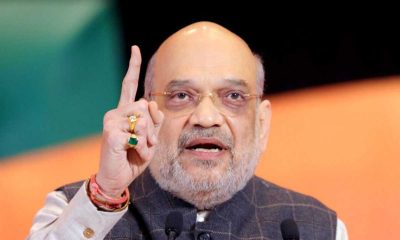
 Latest Politics News9 hours ago
Latest Politics News9 hours agoAmit Shah slams Congress over fake video, plays out actual video, says BJP supports reservation
-

 Entertainment8 hours ago
Entertainment8 hours agoIbrahim Ali Khan makes Instagram debut, first post goes viral
-

 Cricket news4 hours ago
Cricket news4 hours agoRohit Sharma to lead India at ICC Men’s T20 World Cup 2024, Hardik Pandya to be vice captain
-

 Latest Politics News7 hours ago
Latest Politics News7 hours agoKarnataka MP Prajwal Revanna suspended from JDS over sex scandal
-
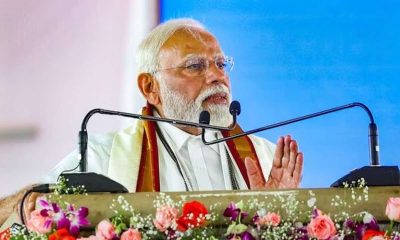
 2024 Lok Sabha Elections2 hours ago
2024 Lok Sabha Elections2 hours agoPM Modi says if Congress comes to power, they will bring out inheritance tax





